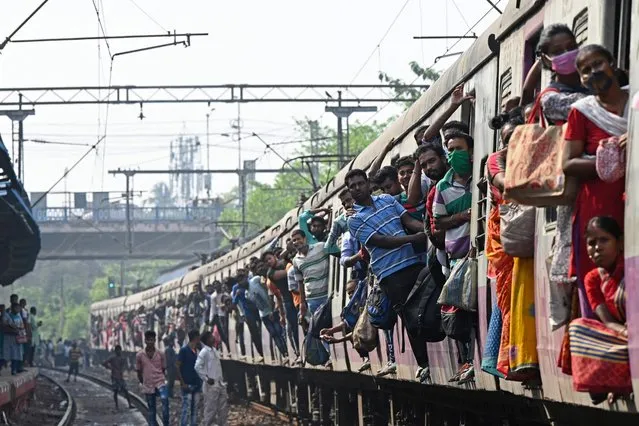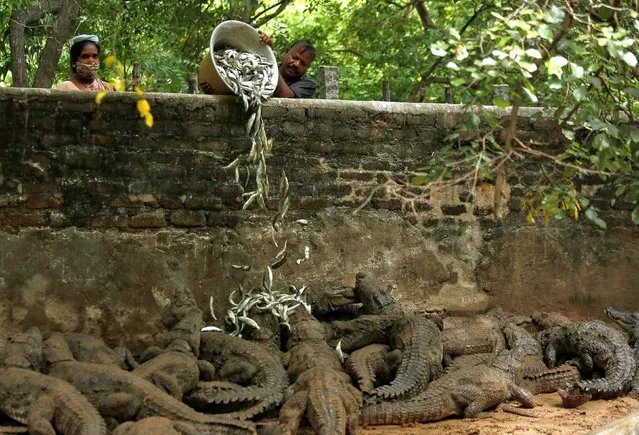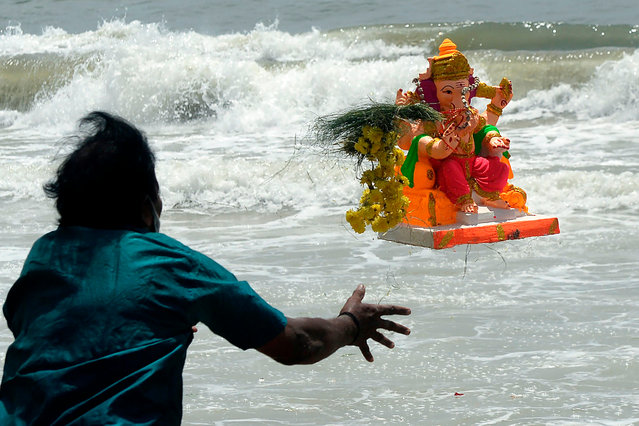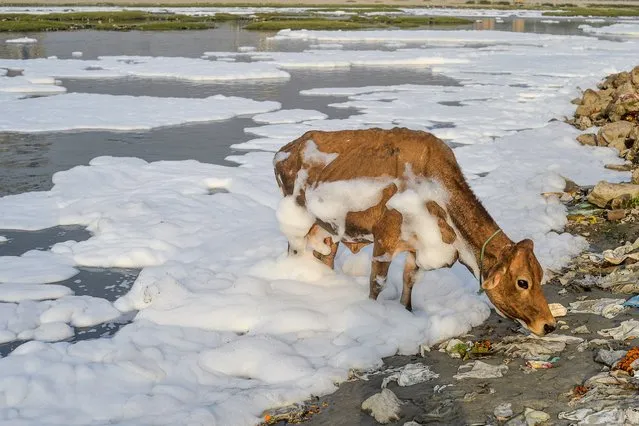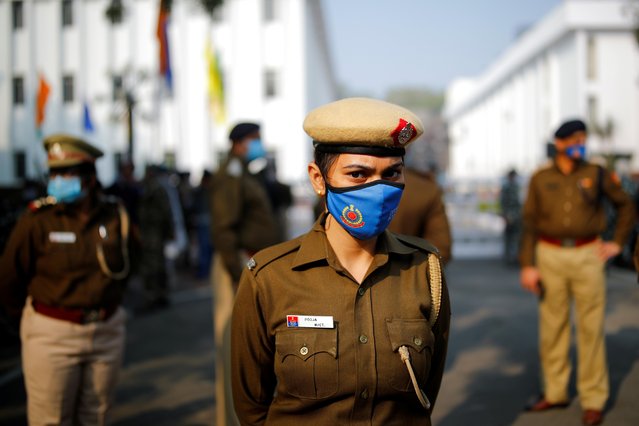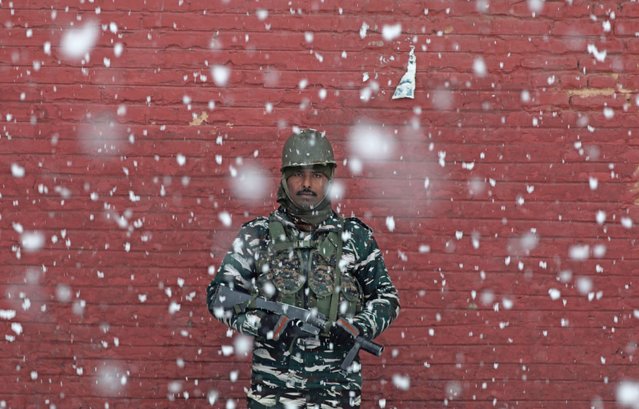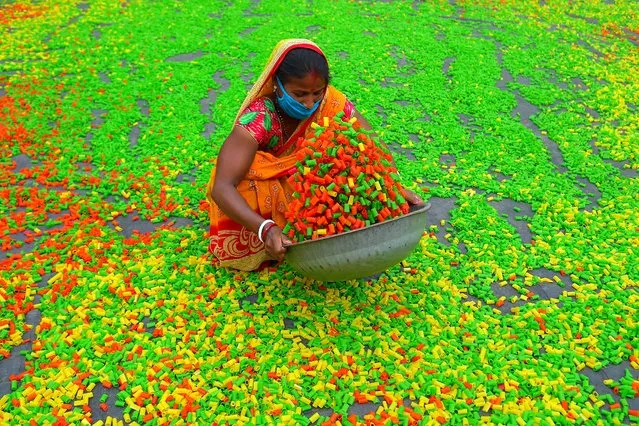
The workers dry the pipe papade made from seasoned and colored dough, during the containment imposed by the government as a preventive measure against COVID-19, in Agartala, the capital of the state of north-east India on May 5, 2020. (Photo by Abhisek Saha/Le Pictorium Agency via ZUMA Press/Rex Features/Shutterstock)
16 May 2020 00:05:00,post received
0 comments


